9:00 AM. Sunday morning.
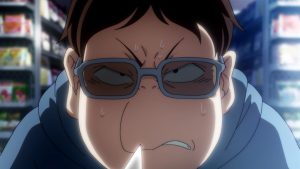 Obon is obviously a big holiday for a series like Gegege no Kitarou, with its “graveyard undokai” and underworld fixation. The episode this one will immediately draw comparisons to is “Ghost Train” (#7), and there are similarities. But in fact, the 2018’s previous Obon episode was “Memories of the Youka” – not just its finest episode, but one of the best of any anime this decade. And, I would argue, this ep has more philosophically in common with that one (and with the spirit – no pun intended – behind the Obon festival).
Obon is obviously a big holiday for a series like Gegege no Kitarou, with its “graveyard undokai” and underworld fixation. The episode this one will immediately draw comparisons to is “Ghost Train” (#7), and there are similarities. But in fact, the 2018’s previous Obon episode was “Memories of the Youka” – not just its finest episode, but one of the best of any anime this decade. And, I would argue, this ep has more philosophically in common with that one (and with the spirit – no pun intended – behind the Obon festival).
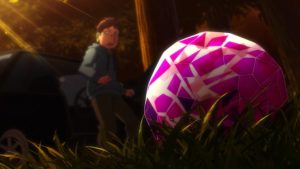 The idea behind this week’s episode is that a living human can be exiled to the Underworld. I would have assumed this to be a highly unusual occurrence, as I’ve heard no mention of it in this mythology (and rarely in any). In this case the living human is a young man named Kakeru, a lowlife pretty crook who jacks cars and holds up convenience stores at knifepoint. Kakeru is played by Ishikawa Kaitou (who as Rinne should certainly know something about the Underworld), and while it’s initially a bit jarring to hear a current “it boy” in a major GGGnK guest role, Ishikawa is a good actor and he soon enough draws us into Kakeru’s nightmarish existence.
The idea behind this week’s episode is that a living human can be exiled to the Underworld. I would have assumed this to be a highly unusual occurrence, as I’ve heard no mention of it in this mythology (and rarely in any). In this case the living human is a young man named Kakeru, a lowlife pretty crook who jacks cars and holds up convenience stores at knifepoint. Kakeru is played by Ishikawa Kaitou (who as Rinne should certainly know something about the Underworld), and while it’s initially a bit jarring to hear a current “it boy” in a major GGGnK guest role, Ishikawa is a good actor and he soon enough draws us into Kakeru’s nightmarish existence.
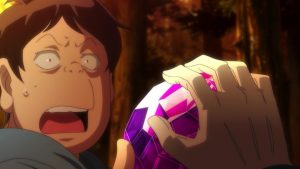 Putting one in mind of “Ghost Train” it’s Kitarou who drives Kakeru to his destination, and there’s one other passenger on the bus, a salaryman played by Ishikawa Hideo – it would be a great story if Hideo was Kaitou’s real father, but alas he’s not. It’s pretty clear right from the beginning that something more than meets the eye is going on here, though I confess I didn’t guess the big reveal about the second passenger until just before it happened.
Putting one in mind of “Ghost Train” it’s Kitarou who drives Kakeru to his destination, and there’s one other passenger on the bus, a salaryman played by Ishikawa Hideo – it would be a great story if Hideo was Kaitou’s real father, but alas he’s not. It’s pretty clear right from the beginning that something more than meets the eye is going on here, though I confess I didn’t guess the big reveal about the second passenger until just before it happened.
 I have to say, the first ten minutes or so were some of the most unpleasant and brutal anime I’ve seen in a long time. Kakeru slowly ages and turns into a ghoulish figure, and in particular the sequence where he steals a hunk of meat from a demon only to have it turn out to be a dead human – and then vomits it up and re-eats it several times in a Sisyphean nightmare – is incredibly disturbing. There’s even a giant spider (Takatsuka Masaya) who actually looks like a hellish version of the Catbus from Tonari no Totoro.
I have to say, the first ten minutes or so were some of the most unpleasant and brutal anime I’ve seen in a long time. Kakeru slowly ages and turns into a ghoulish figure, and in particular the sequence where he steals a hunk of meat from a demon only to have it turn out to be a dead human – and then vomits it up and re-eats it several times in a Sisyphean nightmare – is incredibly disturbing. There’s even a giant spider (Takatsuka Masaya) who actually looks like a hellish version of the Catbus from Tonari no Totoro.
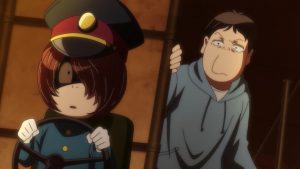 I really didn’t think this story was going to go anywhere redemptive whatsoever, but the salaryman’s presence changes the dynamic in a big way. He offers Kakeru a helping hand, a willing ear, and a message of hope that seems totally out of place in this literal Hell. Eventually a seeming opportunity to escape arrives in the form of the thread from Akutagawa’s seminal tale “The Spider’s Thread”. And while the thread itself is – as in the original – a mirage of temptation, in this instance it’s also a genuine opportunity for Kakeru to redeem himself. Which indeed he does.
I really didn’t think this story was going to go anywhere redemptive whatsoever, but the salaryman’s presence changes the dynamic in a big way. He offers Kakeru a helping hand, a willing ear, and a message of hope that seems totally out of place in this literal Hell. Eventually a seeming opportunity to escape arrives in the form of the thread from Akutagawa’s seminal tale “The Spider’s Thread”. And while the thread itself is – as in the original – a mirage of temptation, in this instance it’s also a genuine opportunity for Kakeru to redeem himself. Which indeed he does.
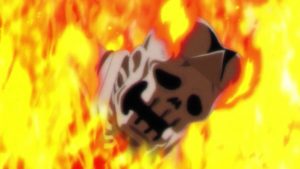 It’s important to remember that the idea of Obon is that the deceased have a brief window of time where they can visit their living loved ones. In that context, for Kakeru’s father to have done this makes perfect practical and symbolic sense – from beyond the grave (indeed seemingly from Jigoku itself) he’s found a way to connect with the son he never knew and to offer him a chance to escape the eternal fate which claimed his father. It’s an episode that bears re-watching I think, because knowing the truth changes how we see it. And I think the moment where the father argues that “there’s always someone watching over you” is especially poignant. How he managed to claim this chance I don’t know, but in doing so I think he shows that it’s not only Kakeru who deserves a chance at redemption.
It’s important to remember that the idea of Obon is that the deceased have a brief window of time where they can visit their living loved ones. In that context, for Kakeru’s father to have done this makes perfect practical and symbolic sense – from beyond the grave (indeed seemingly from Jigoku itself) he’s found a way to connect with the son he never knew and to offer him a chance to escape the eternal fate which claimed his father. It’s an episode that bears re-watching I think, because knowing the truth changes how we see it. And I think the moment where the father argues that “there’s always someone watching over you” is especially poignant. How he managed to claim this chance I don’t know, but in doing so I think he shows that it’s not only Kakeru who deserves a chance at redemption.


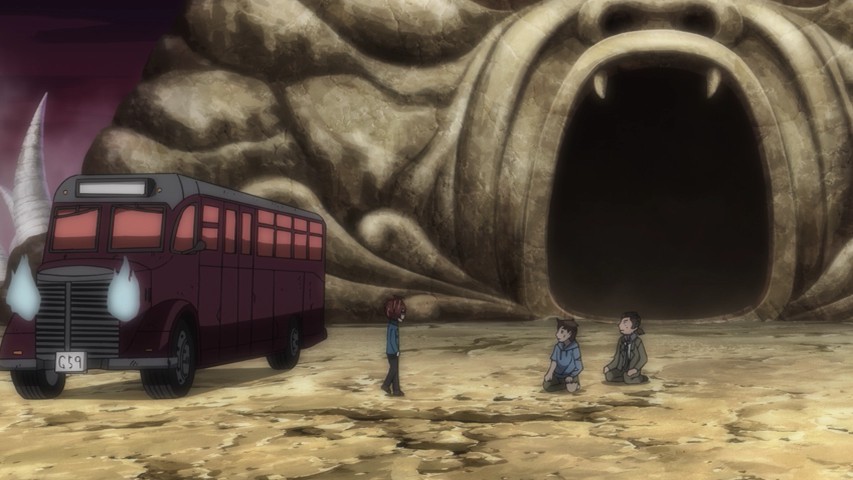
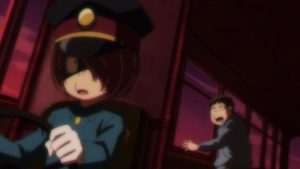
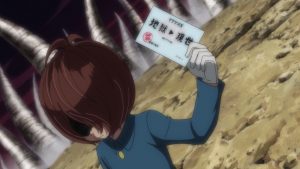
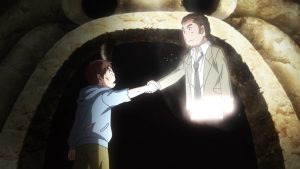
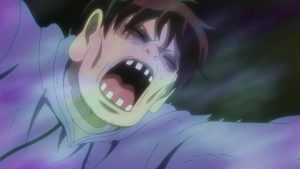
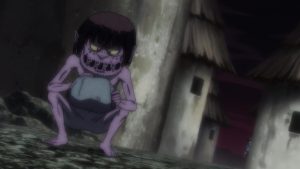
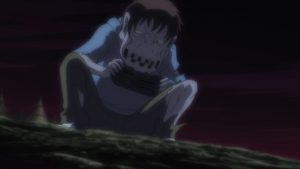
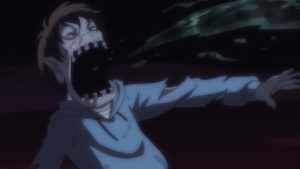
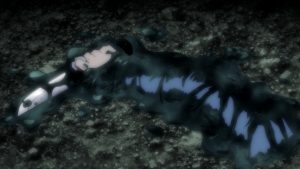
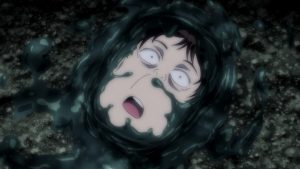
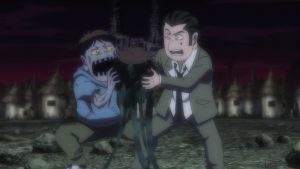
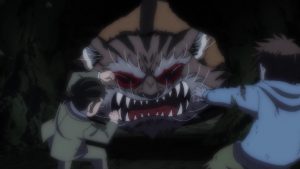
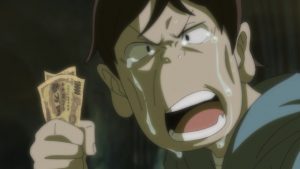
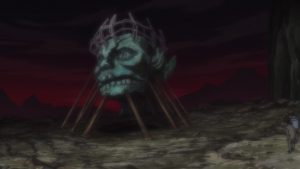
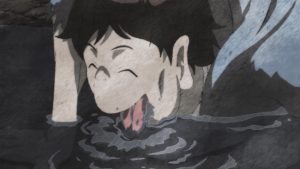
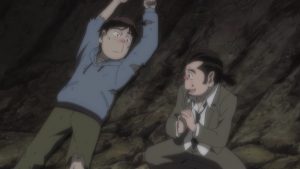
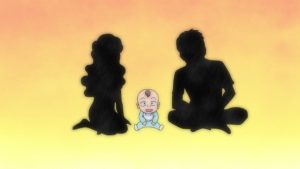
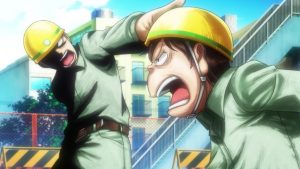
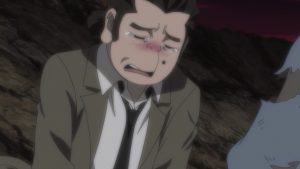
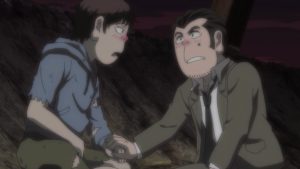

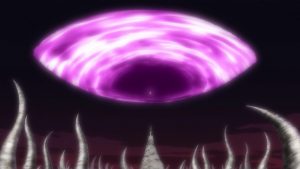
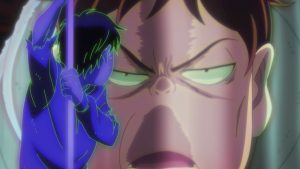
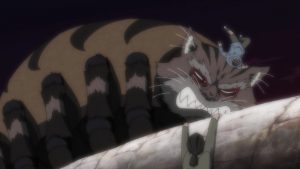
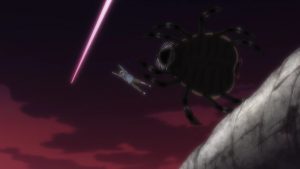
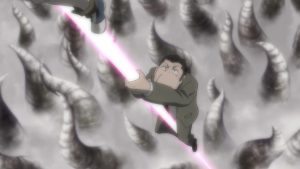
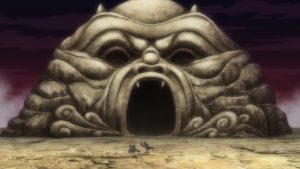
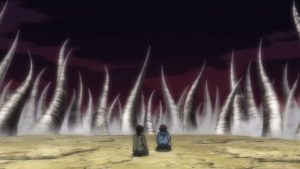
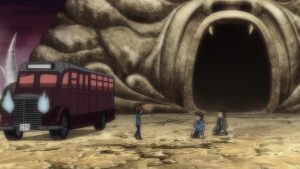
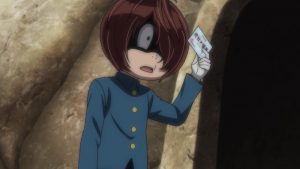
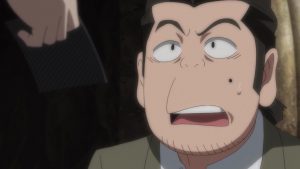
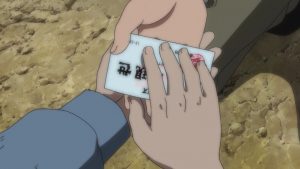
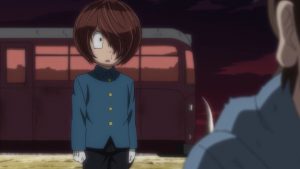
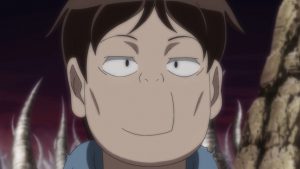
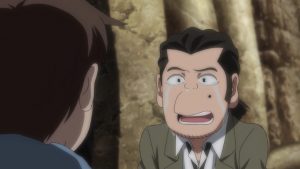
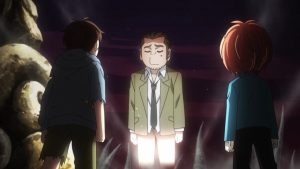
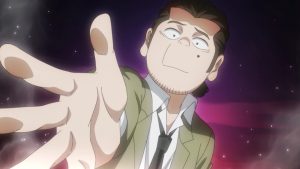
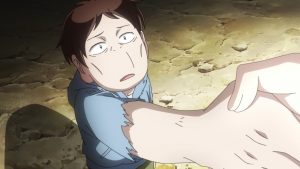
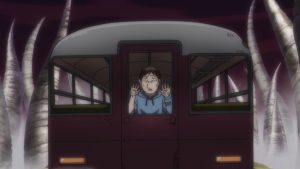
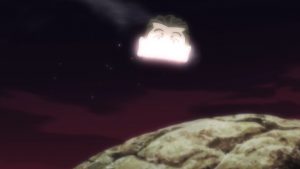
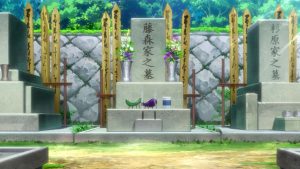
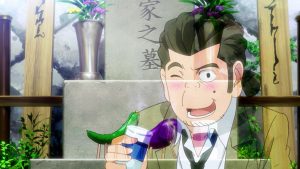
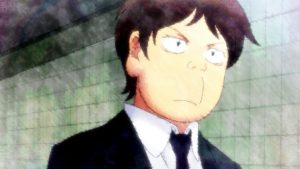
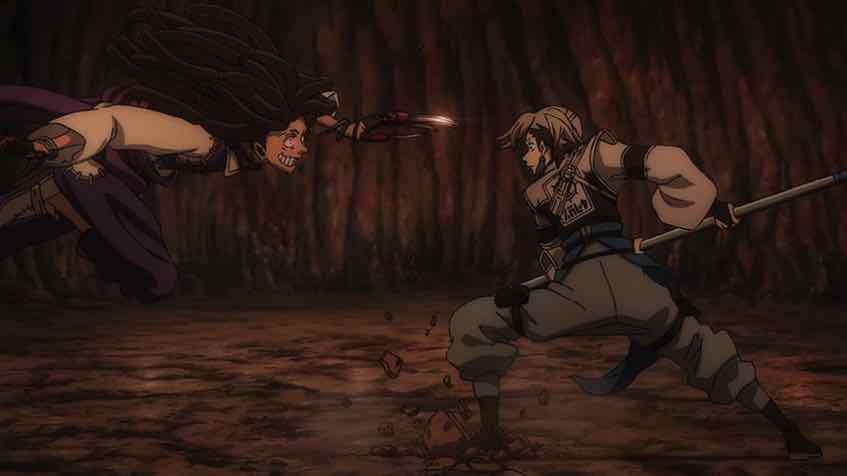
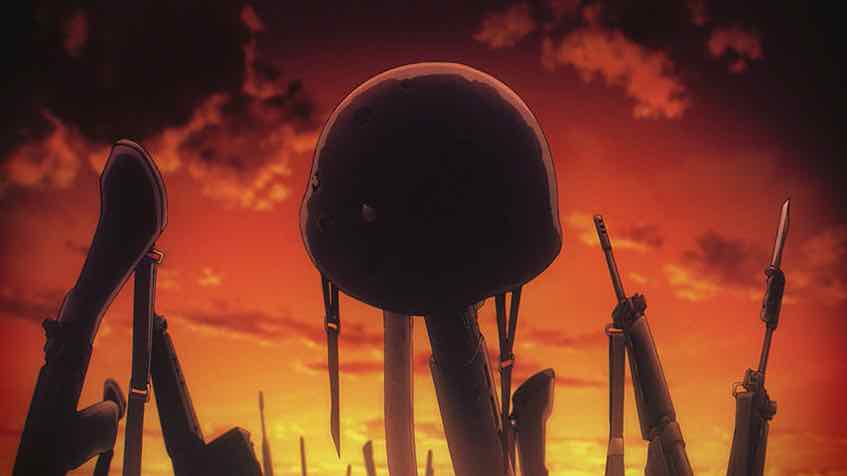
Aera
August 11, 2019 at 9:46 pmEpisodes like this make me forget that this is broadcasted every Sunday morning, 9 AM. God, the entire first half of this episode is genuinely disturbing it really scares the hell (pun intended) outta me. Kakeru witnessing hell through bus’ window for the first time, the screams of agony, and the scene where Kakeru turned to ghoul, stole and ate a meat before vomited them repeatedly… I’m not sure if I can sleep well tonight after witnessing that.
Yes, this episode really heavily reminded most viewers of Ghost Train. And just like you, I thought it would go to the similar route as Ghost Train–a human did unforgivable deeds, Kitaro brought him to hell, we witnessed how he suffered, the end–but the redemption arc of Kakeru was unexpected. And the second passenger’s identity was also unexpected too. In the end, it turned out very wholesome. I googled a bit about Obon, and this episode seemed pretty in-theme with Obon itself (though I may be wrong). A day where relatives who live in different world are allowed to meet with each other.
Though I kind of wish that the second passenger could get his redemption too, since I think he never meant to ruin the life of people he loved. Then again, maybe meeting Kakeru and helped him to face his own sins and defeat his inner demon was… enough? He also got along well with Kakeru as well, so maybe he’s happy with that. He’s always watching over Kakeru too, and the latter made a real effort to change for the better.
Pretty great episode. I’ve had high expectation to this episode but I’m still blown away nevertheless. Episodes of Kitaro bringing living humans to hell due to their misdeeds have always been a thing since the first iteration, so if you’re interested you can check out that episode!
Also, Ishikawa Kaito’s performance is awesome, and it’s a surprise to see him playing as one-off character in this episode. His role as Jiro Hitoyoshi of Concrete Revolutio is the most memorable one for me, so it’s really a pleasant surprise for him to voice Kakeru.
Thank you for the review as always. And I’m glad you also enjoyed this week’s episode.
Guardian Enzo
August 11, 2019 at 10:55 pmThank you! I would note regarding the father, he does say that he’ll be “visiting” his son every Obon – which suggests that he might have gotten promoted from Hell to the general Underworld.